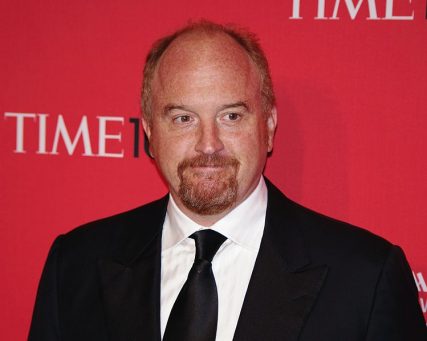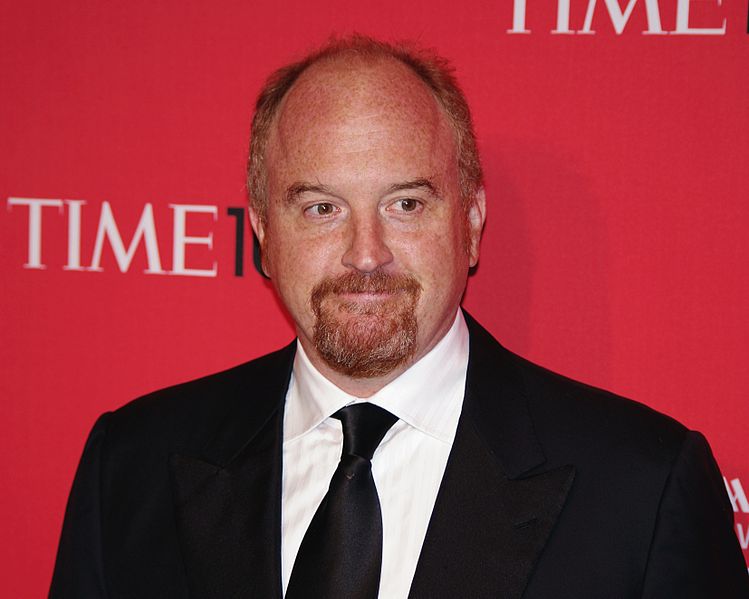
Louis C.K. at the 2012 Time 100 gala. Photo by David Shankbone, courtesy Wikimedia Commons.
It’s imperfect and sometimes problematic, but FX’s Louie is often surprisingly insightful, offering one of television’s most visceral portrayals of how hilariously messy and complicated life can be.
But like his television show, Louie creator Louis C.K. holds some messy and complicated views—as evidenced by some of his statements about atheism.
Appearing on NPR’s Fresh Air yesterday, the comedian was asked about his Saturday Night Live monologue from late March, where he offered some choice words for people who say that there isn’t a God:
I’m not religious. I don’t know if there’s a God… Some people think that they know that there isn’t. That’s a weird thing to think you can know. “Yeah, there’s no God.” Are you sure? “Yeah, no, there’s no God.” How do you know? “Cause I didn’t see Him.”
Reflecting on these remarks, C.K. told Fresh Air host Terry Gross:
Something I’ve learned over the years is that when you talk about religion, you want to talk to religious people. Even if you’re talking about something that’s contrary religiously or provocative, a religious audience is a better audience for that. If you talk to a bunch of cool atheists in leather and suede, you know, sucking on their vape sticks or whatever they’re doing, they’re not going to get it because they don’t even think about God. It’s not even on their radar, you know? But if you tell religious people, “I don’t know if there’s a God, I don’t think there’s a heaven, where’s God’s ex-wife,” these things, they have a connection to it that means something.
Gross then asked C.K. if his position is that “you don’t believe in God but how can you really know?” C.K. said yes, adding, “The main thing I feel is that it’s a great mystery. I feel like I need to be humbled before the mysteries of life… You have to consider every possibility.”
This isn’t the first time C.K. has offered confusing statements about atheism; in a 2011 Reddit Q&A he said both “I’m not an atheist” and “I don’t ‘Believe in god,’” and suggested that he does not consider himself an atheist because he doesn’t know for sure that there is no God.
It seems that a lot of this confusion boils down to differing definitions of atheism. If atheism means knowing beyond a shadow of a doubt that there are no gods, then C.K. is right. But that definition of atheism doesn’t fit most of the atheists I know. In fact, it runs up against something many atheists value: Doubt.
As an atheist, I never want to be too certain about what I believe. I strive to continually test and retest my assumptions, comparing them against new information and data as I encounter it. My atheism is curious, reflecting both a willingness to be wrong and a constant desire to learn.
So let’s clear the air: Being an atheist does not require absolute certainty. It doesn’t mean you rule out the possibility of divine or supernatural entities existing. Instead, it is the position that such a possibility is unlikely, and that the case for God hasn’t been adequately made yet.
On the one hand, I appreciate C.K.’s call for intellectual humility—it is a message that many atheists and theists alike would do well to heed. On the other hand, I wonder if he isn’t being a bit more forgiving of closed-minded theism than he is of closed-minded atheism. Does C.K. hold the same view of theists who believe with absolute certainty that there is a God as he does of atheists who operate similarly?
Either way, C.K.’s comments are an opportunity for atheists to take a look in the mirror. C.K. claims he is not religious, is not sure whether or not there is a God—and yet he says that he is not an atheist because he considers atheism too certain, too rigid, too sure of itself.
Perhaps his remarks are an invitation for us to look at how we communicate atheism to others. If atheism is seen as narrow-minded, what can we do to demonstrate our commitment to critical thinking and inquiry? And if C.K. thinks that “when you talk about religion, you want to talk to religious people,” what does that say about how a number of atheists talk about religion?
Louie is that rare show that reminds us that, to quote C.K.’s character Louie, “life is bigger than you… [It] isn’t something that you possess; it’s something that you take part in, and you witness.” Perhaps C.K.’s comments can serve as a reminder to atheists that we need to actively take part in the broader conversation about religion and belief—or we will continue to be misunderstood by people who share many of our views.
RNS needs your help. If you appreciate my posts, please consider a donation so RNS can meet its $10,000 fundraising goal by Friday. For every donation of $100, I’ll send you a signed copy of my book, Faitheist.






